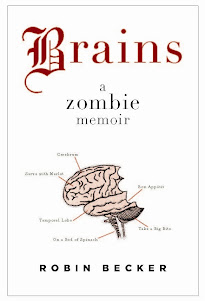I've never blogged about another blog post before--but I've been thinking about this one all week. It's the post about MFA programs over at
Editorial Anonymous (one of my favorite blogs).
Basically, EA said that having an MFA doesn't make you a good writer--but more importantly, an MFA won't make you write books for which you'll get paid.
The comments section is full of people either defending or deriding MFA programs--but EA's not talking about the MFA. She's talking about publishing--and the chances of an MFA grad writing something that a wide audience wants to read. She's talking about money.
On that score, EA's right. Lots of MFA graduates are writing for other writers and academics, other MFAs. And she's right that those books won't get published by big presses. Because they won't make money.
But there is an audience for experimental and L-A-N-G-U-A-G-E poets, for slice-of-life quiet short stories, for surreal flash fiction, for novels that are long on words and short on plot.
I just returned from the AWP conference where there were literally hundreds of small and university presses whose missions are to publish writers whose books will never be picked up by Random House and turned into HBO series.
But they don't care! Small presses don't offer five or four figure advances. Hell, the author would be lucky to get three figures, and usually, the writer takes a percentage of sales and that's it. And that's okay with them. Because they're not writing for the big score. They are teachers, mainly, and they write what interests them.
Allow me one example: one of my favorite small presses is
Slack Buddha. I visited their table at AWP and came across my new favorite chapbook:
Sonnagrams. Each Sonnagram is an anagram of one of Shakespeare’s sonnets. The sonnets are in iambic pentameter with the ABAB rhyme scheme, but there are some wack-ass contemporary references involving Ben Stiller's feet. It's hilarious and you can read a sample
here.
Anyway, the point is that Sonnagrams is never gonna win the Pulitzer. It's not for everyone. It's not gonna get published by a big New York house. But I loved it! And it's a book, by gum. An honest-to-god book.
Three cheers for the small press! Keep the flame alive.
PS: Another of EA's points was this: If your work has a limited audience, like Sonnagrams, don't even bother with an agent. Find your audience, write what you love, and they will love you back.












